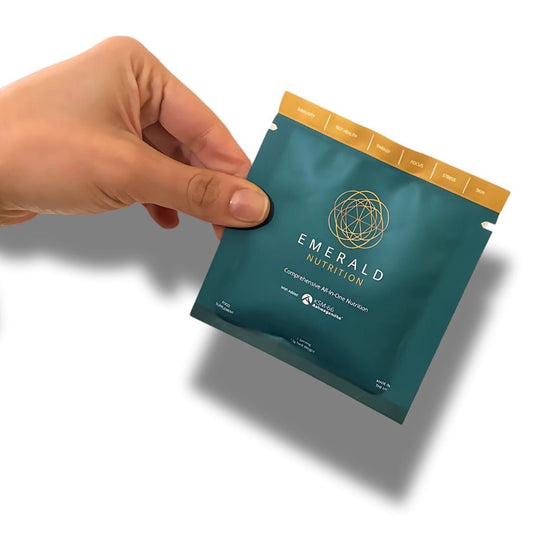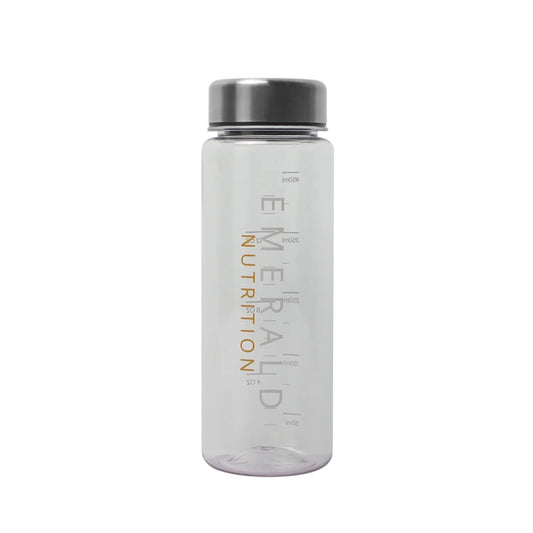
Adaptogens 101: Ancient Roots, Modern Balance
Julia BłoszykShare
 In today’s fast-paced world, where stress seems to be a permanent fixture in our lives, many people are turning to natural solutions to restore balance. One category of these powerful botanical allies is adaptogens—herbs and roots that have been used for centuries to help the body adapt to stress, promote equilibrium, and support overall well-being.
In today’s fast-paced world, where stress seems to be a permanent fixture in our lives, many people are turning to natural solutions to restore balance. One category of these powerful botanical allies is adaptogens—herbs and roots that have been used for centuries to help the body adapt to stress, promote equilibrium, and support overall well-being.
At Emerald Nutrition, we’re passionate about harnessing the wisdom of traditional nutrition and holistic healing. In this post, we’re diving into the world of adaptogens: what they are, where they come from, and how ancient cultures used them to support health long before "wellness" became a buzzword.
What Are Adaptogens?
Adaptogens are a class of plants and mushrooms that help the body resist physical, chemical, and biological stressors. The term was first coined by Russian scientist Dr. Nikolai Lazarev in the 1940s, who studied how certain herbs enhanced resilience and stamina in Soviet soldiers and athletes.
But while the modern scientific term is recent, the use of adaptogenic herbs is anything but new. For thousands of years, traditional systems of medicine like Ayurveda (India) and Traditional Chinese Medicine (TCM) have incorporated these plants into daily life to promote balance, vitality, and longevity.

A Look Back: Ancient Wisdom and Holistic Healing
In Ayurveda, the focus is on balancing the doshas—the body’s vital energies—and maintaining harmony between the mind, body, and spirit. Herbs like Ashwagandha were prized for their rejuvenating and grounding effects. Similarly, in Traditional Chinese Medicine, herbs such as Korean Ginseng were seen as “Qi tonics,” used to replenish energy and strengthen the body's core vitality.
These systems recognised that stress—whether emotional, environmental, or physical—was at the root of many ailments. Their approach wasn’t just to treat symptoms, but to build resilience from the inside out.

Key Adaptogens to Know
🌿 Ashwagandha (Withania somnifera)
Often referred to as the "king of Ayurvedic herbs," Ashwagandha has been used for over 3,000 years. It’s a rasayana, or rejuvenative herb, that supports:
- Stress reduction by lowering cortisol levels
- Improved energy and stamina
- Enhanced mental clarity and sleep quality
Ashwagandha is particularly grounding, making it ideal for those feeling burned out or overwhelmed.
🌱 Korean Ginseng (Panax ginseng)
Known as “Ren Shen” in Traditional Chinese Medicine, Korean Ginseng is a root with a long history of use as a vitality booster. It’s considered a yang tonic, used to:
- Enhance physical endurance and performance
- Sharpen mental focus and clarity
- Strengthen the immune system and balance energy
Unlike Ashwagandha, which has more calming properties, Korean Ginseng is more stimulating—perfect for combating fatigue and low motivation.

How Adaptogens Work in the Body
Adaptogens support the hypothalamic-pituitary-adrenal (HPA) axis, the body’s central stress response system. They help regulate hormones like cortisol and balance neurotransmitters that influence mood, energy, and immunity.
What makes adaptogens unique is their ability to be bi-directional—meaning they bring the body back into balance whether something is too high or too low. For example, if you're fatigued, they can boost energy. If you're overstimulated, they can help calm the system.

Incorporating Adaptogens into a Supergreen Lifestyle
At Emerald Nutrition, we believe that optimal nutrition isn't just about hitting macros or counting calories—it's about nourishing your body holistically. Adaptogens are an ideal addition to a superfood-rich lifestyle, especially when combined with:
- Greens like spirulina and chlorella
- Plant-based proteins
- Whole-food antioxidants and probiotics
You can find adaptogens in powdered supplements, teas, tinctures, or blended into your favourite supergreen smoothies or energy bowls.
A Word of Caution
While adaptogens are generally safe and well-tolerated, it's important to remember:
- Effects may take time—consistency is key
- Always consult with a healthcare provider if you're on medications, pregnant, or breastfeeding
- Start with small doses to see how your body responds
Conclusion: A Return to Balance
Adaptogens represent a beautiful fusion of ancient wisdom and modern wellness. Whether you're navigating a high-stress job, juggling parenting duties, or simply looking to restore your energy naturally, these time-tested herbs can be a powerful part of your health toolkit.
At Emerald Nutrition, we’re proud to support your journey with clean, plant-powered products that honour tradition and fuel transformation. 🌱

Ready to explore adaptogens?
Check out our latest blend featuring Ashwagandha, Korean Ginseng, and more at www.emerald-nutrition.com.







